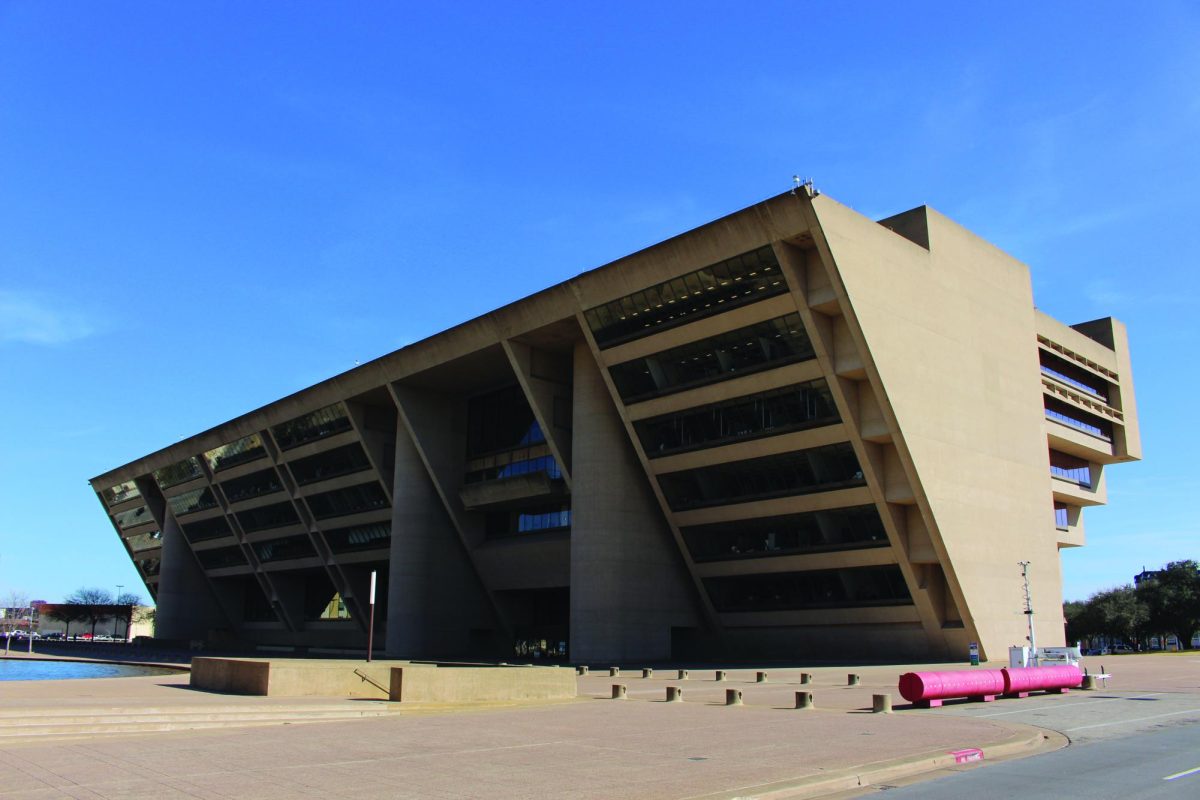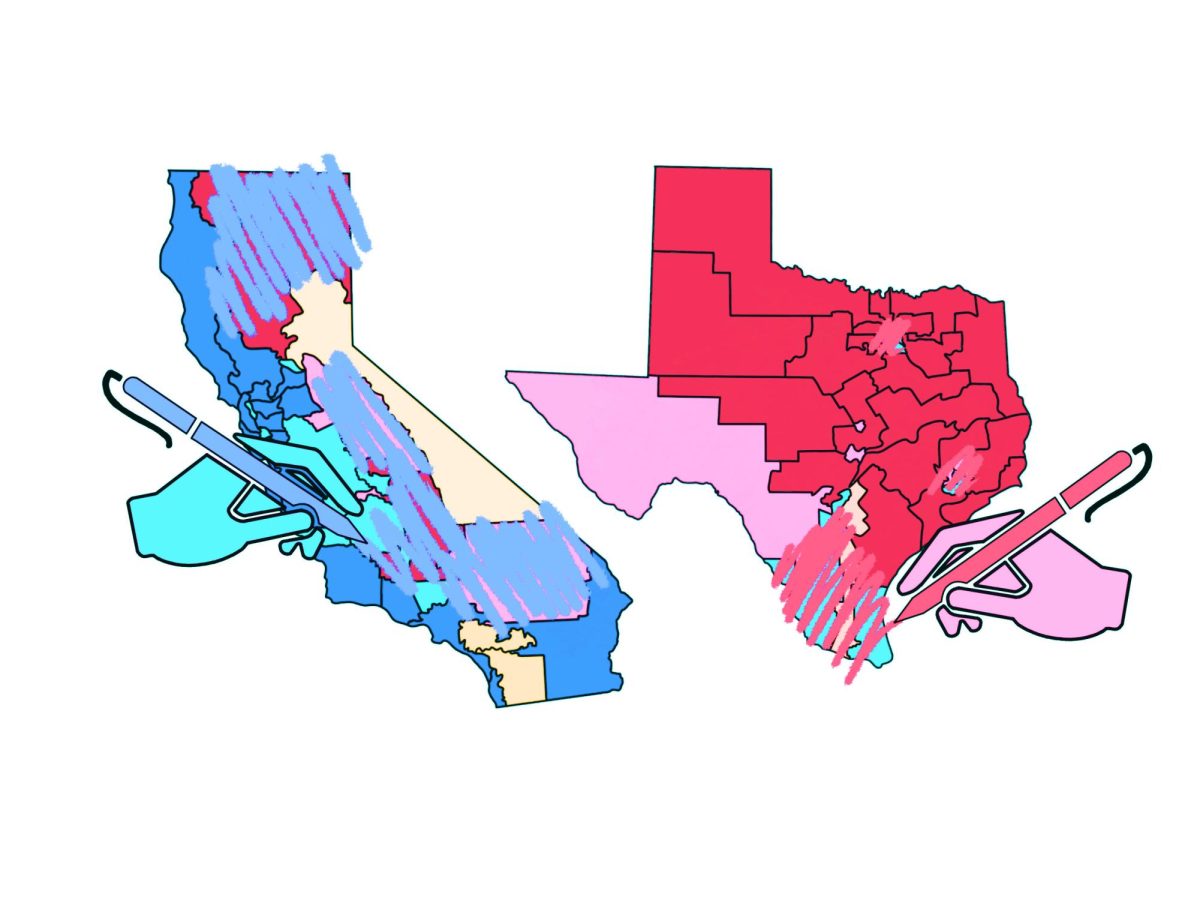When Dallas voters swarmed the ballot boxes on Nov. 5, the stakes went beyond deciding who was going to win the presidential election.
Because there were three additional choices to make.
Because these choices could drastically change how Dallas’ local government operates.
Because amidst the names of candidates at the ballot boxes, the letters S, T and U stared back at each voter from the slips.
And by the very next day, on Nov. 6, the voters’ final decision was revealed.
Placed on the ballot by citizen-driven organization Dallas HERO, these three amendments — S, T and U — have been under significant scrutiny.
S allows residents to sue the city for not following its own laws and removes its legal immunity in these cases.
U requires funding for police and firefighter pensions, a 4,000-officer police force and higher pay for them.
T, which failed, called for an annual residential survey to decide if the city manager should get a raise or be fired.
For former Dallas Mayor Mike Rawlings, the magnitude of demands that these proposed amendments push forward is historic.
“Especially for amendment S, no city in Texas or the United States has given up their governmental immunity,” he said. “This has never been done before.”
But with this in mind, he stands firmly opposed to the two recently passed propositions, S and U, warning that they could disrupt the city’s operations.
In his eyes, these amendments have the combined potential to create unprecedented chaos at Dallas City Hall soon, as he believes they will pile onto the preexisting challenges that council people are already grappling with.
“We’re struggling with a lot of things,” Rawlings said. “These amendments are going to complicate matters further, and they’re going to take their eyes off the ball from doing what’s important for taxpayers. Taxpayers are going to be hurt for the next two years.”
Rawlings also cautions against the benefits that these amendments present on the surface.
“Some citizens read these amendments and say to themselves, ‘I like to sue people. This amendment allows me to sue people,’ or ‘I want more police officers, that sounds good to me,’” Rawlings said. “But they aren’t reading the details and don’t understand how these dominoes start to fall and increase the chaos of the city.”
While he agrees that amendments S and U will maintain a stable relationship between public safety and civilians, he remains convinced that there will inevitably be financial distress.
“I think people will continue to support police officers and continue wanting more safety,” Rawlings said. “But S and U are going to create cuts in other services, and so citizens and taxpayers are not going to be happy when they see those things start to happen. There are major financial implications.”
Economic concerns aside, others believe the amendments can provide solutions for other essential issues that need attention in Dallas.
“My neighbor’s house burned down a few weeks ago, and these firefighters were coming out of this burning building, ripping their gear off, falling to their knees and then going back in and doing this incredible job,” History Instructor Dr. Jerusha Westbury said. “The HERO initiative was great politicking because everyone wants police officers to get their pensions: anybody who puts their lives on the line for the safety and security of people, you want them to get their pensions.”
And although she acknowledges the potential risks that come with the recruitment of 900 more police officers, Westbury is optimistic that the additional reinforcements will be in Dallas’ favor. With public safety being a current concern, the city’s police response time of two hours to major incidents is an issue that many residents hope will be addressed.
“I don’t believe that the results of mass hirings will necessarily turn Dallas into a police state,” Westbury said. “Voters have clearly expressed that they don’t want to see that. Recently, Dallas has taken real moves to train its officers in de-escalation and to enhance community relations. Officers have to be hired, but they do not have to be used in the ways that some people fear.”
In addition to being potential solutions to pressing issues in the city, Westbury believes that the amendments can serve as a way for Dallas sites to speak their minds about the management decisions the city has made.
“I think there’s a lot of resentment in the city right now,” Westbury said. “There’s a sense that the city isn’t doing things correctly, and that’s why proposition S was passed and proposition T was rejected.”
But overall, Westbury commends the rhetoric and strategy that enabled the two propositions’ success.
“It was a really clever campaign,” Westbury said. “They were able to sell it to a city that is pretty overwhelmingly Democratic because it was phrased as allowing people to go after the big guys, but I see this actually as a way to increase enforcement of state law over city law.”
However, Westbury remains unsure about amendment S, as it holds Dallas accountable not only to its own laws but also to the state laws of Texas, raising concerns about its impact.
“Texas has a long history of promoting the idea of local self-rule, and for a long time, cities have had a certain degree of that,” Westbury said. “But recently, there seems to be a real move over the last few years to undercut that sort of sovereignty on the city level within Texas.”
Yet despite the mixed concerns and conflict among Dallas residents, Westbury hopes that the amendments will serve as a powerful push forward for Dallas and even the state on a proper path for the future — but people still need to be wary.
“State laws and city laws are obviously not necessarily going to match,” Westbury said. “This is just a brilliant way of trumping the city’s sovereignty. I have high hopes that it gives the people power, but I wouldn’t be surprised if it was also used to increase the power of the state government.”
Controversial proposals for Dallas pass despite warnings
December 13, 2024
Categories:
The Dallas City Hall is located in the Government District of downtown.
More to Discover
About the Contributors
Kevin Ho, Managing Editor
Shiv Bhandari, Life Editor








